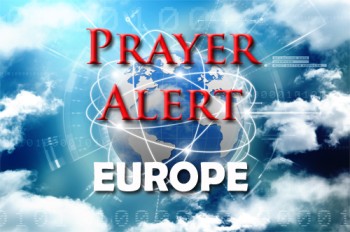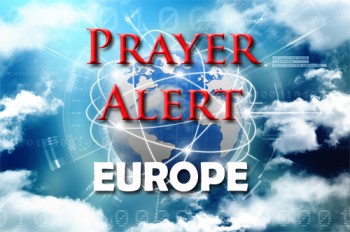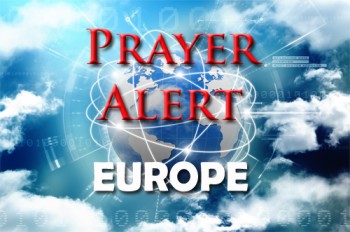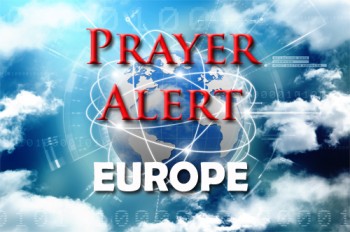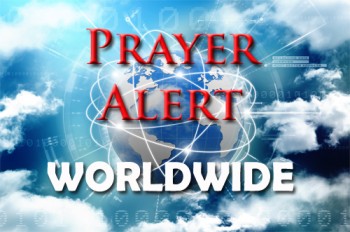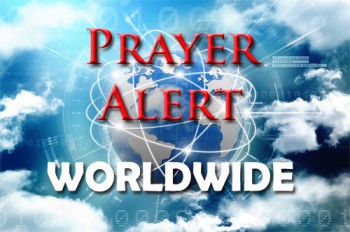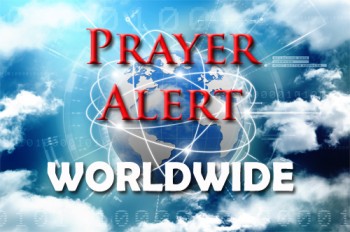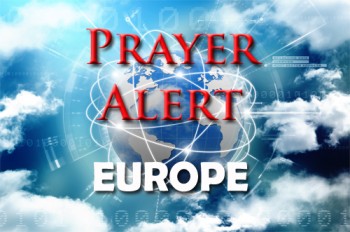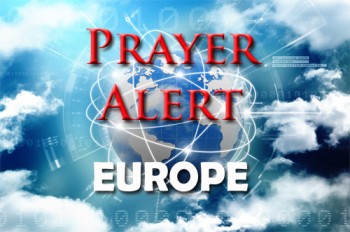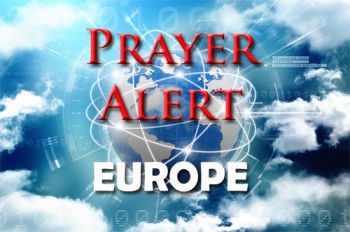Displaying items by tag: Russia
Russian preparations to attack Ukraine?
Russia has over 92,000 troops massed around Ukraine’s borders and is preparing for an attack by the end of January or beginning of February, said the head of Ukraine’s defense intelligence agency, Brig Gen Kyrylo Budanov. He said that an attack would likely involve airstrikes, artillery and armour attacks followed by airborne assaults in the east, amphibious assaults in Odessa and Mariupul, and a smaller incursion through neighboring Belarus. Russia’s large-scale Zapad 21 military exercise earlier this year proved they can drop more than 3,500 airborne and special operations troops at once. America’s defence secretary Lloyd Austin said, ‘The USA continues to see troubling Russian behaviour. We are not sure what Mr Putin is up to, but these movements certainly have our attention. I would urge Russia to be more transparent, and to take steps to live up to the Minsk agreements. Our support for Ukraine sovereignty and territorial integrity remains unwavering.’
Moldova: severe energy crisis
Moldova has made history by buying gas from a source that was not Russia's Gazprom. The one million cubic metres came from Poland's PGNiG. Moldova will need much larger volumes if Russia cuts supplies, as it has threatened to do if they don’t agree to increased costs in a new contract. In the absence of a new deal Russia reduced supplies, prompting Moldova to declare a thirty-day state of emergency. Gazprom accused Moldova of ‘provoking a crisis’ and demanded repayment of a $709m (£514m) debt, which Moldova disputes. Officials say they would like to sign a new contract with Gazprom, but only if the terms are favourable. Negotiations continue. Moldova said PGNiG’s shipment was to test the ability of imported gas from alternative sources, and PGNiG was one of seven offers they had received. Critics accuse the Kremlin of hiking gas prices to punish Moldova for electing a pro-European president, Maia Sandu.
Russia: Kremlin stops 'Smart Voting’
Political leader, Aleksei Navalny, is documenting corruption and ostentatious spending by government officials and launched ‘Smart Voting’ to loosen the chokehold the Kremlin-allied United Russia party has on elected legislatures nationwide. Authorities have stepped up a crackdown on anything connected to Smart Voting in the runup to September’s elections to the lower house of parliament - crucial for cementing United Russia’s political life and key to constitutional manoeuvering ahead of 2024’s presidential election. Navalny used the Smart Voting tactic to secure victories for hundreds of opposition candidates in local elections in 2018, 2019 and 2020. On August 24th Smart Voting went high-tech with a downloadable app that identifies in most races the candidate most likely to defeat their ruling party rival, regardless of party affiliation or ideology, and urges voters to cast their votes for that candidate. Navalny is now experiencing police intimidation, attempts to block the Smart Voting website and fake Smart Voting sites flooding the Internet.
Russia/China: joint defence ties
Beijing and Moscow have prioritised strengthening their military relationship, under the leadership of Xi Jinping and Vladimir Putin. Their defence ties have matured to the point that analysts claim the relationship constitutes a ‘de facto military alliance’ characterised by mostly high-level contacts and technical cooperation. There have been thirty joint exercises since 2003, and the scenarios associated with them (controlling islands and reefs; amphibious and air defence operations), the locations (Baltic, Mediterranean, and South China Sea), and live-fire operations with air missiles against cruise missile targets are quite telling. Meanwhile, the US has cut the size of its navy.
Ukraine: Black Sea confrontation
A Russian warship in the Black Sea fired warning shots and dropped bombs ahead of British destroyer, HMS Defender, to make it change course. Russia claimed the destroyer was in territorial waters they took from Crimea in 2014.It was the first time since the Cold War that Moscow acknowledged using live ammunition to deter a NATO warship, reflecting the growing risk of military incidents amid soaring tensions between Russia and the West. Russia’s claim on the Crimean peninsula is not recognised globally. Ukraine's foreign minister said Russia's aggressive and provocative actions in the Black and Azov seas and its occupation and militarisation of Crimea pose a lasting threat to Ukraine and its allies. A newspaper reporter on board the destroyer said, ‘The thud of cannon fire rings out on the port side as I crouch beside the bridge in my flame retardant gloves and balaclava. The deafening roar of supersonic aircraft filling my ears is unsettling.’
USA / Russia: relations warming
Before talking in Geneva relations between the USA and Russia were at rock bottom. After talking, both presidents praised their talks but have made little concrete progress at the first such meeting since 2018. Disagreements were stated, said Joe Biden, but not in a hyperbolic way, and he said Russia did not want a new cold war. Vladimir Putin said Mr Biden was an experienced statesman and the two ‘spoke the same language’. They agreed to begin a dialogue on nuclear arms control and said they would return ambassadors to each other's capitals. However, there was little sign of agreement on cyber-security, Ukraine, or the fate of Russian opposition leader Alexei Navalny, who is currently serving a two-and-a-half-year sentence in a penal colony. Mr Biden said there would be ‘devastating consequences’ for Russia if Navalny died in prison. Mr Putin hinted at a possible deal on exchanging prisoners, saying he believed compromises could be found.
Putin and Biden meet next week
US president Joe Biden and Russian president Putin will meet in Geneva on 16 June. They first met in 2011, when vice-president Biden told Putin, ‘I don’t think you have a soul.’ They clashed again in 2014, when Biden was tasked with bolstering Ukraine in the wake of its protests and pressuring Russia to scale back military interference in eastern Ukraine. Putin then pushed back against Biden and the strain of US policy he represented. In 2016 Putin had his intelligence services interfere with the US presidential election, hoping Donald Trump, once elected, might reverse Obama’s administration stance on Russia. In the ensuing years, Putin’s minions likely passed information or misinformation to Biden’s son Hunter, which Trump’s supporters eagerly received and did their best to deploy in the 2020 campaign. With so much jagged history between them, the meeting will be awkward at a personal level.
Switzerland: Geneva summit for Biden and Putin
US president Joe Biden and Russia's president Vladimir Putin will hold their first summit on 16 June in Geneva, setting the stage for a new chapter in their fraught relationship. The leaders will discuss the full range of pressing issues, seeking to restore predictability and stability to the US-Russia relationship. The Kremlin said that Putin and Biden would be discussing ‘issues of strategic stability,’ as well as ‘resolving regional conflicts’ and the Covid-19 pandemic. Biden, making his first international trip as president, will go to Geneva immediately after separate summits with his key Western allies in the G7, NATO, and the EU. To prepare the ground, US secretary of state Antony Blinken and veteran Russian foreign minister Sergei Lavrov met last week in Reykjavik. After their meeting, a Kremlin spokesman, Dmitry Peskov, said that repairing ties ‘will not be easy’, but he saw ‘a positive signal’.
Russia: Navalny dissolves political network
Jailed Kremlin critic Alexei Navalny’s political network is disbanded ahead of court rulings declaring it an ‘extremist’ organisation. A Moscow court is expected to ban the network’s crowdfunded work, which would put members and supporters at risk of six years in prison. Leonid Volkov, the network’s former coordinator, said that keeping the work of Navalny’s network in its current form would lead immediately to extremism charges and criminal sentences for those helping or cooperating with it. He said the breakup was a ‘punch in the gut’ after four years of hard work in very difficult circumstances: ‘The networks had victories. We cancelled corrupt public procurement orders, secured the resignation of thieves and crooks, won elections, protected parks from development projects, and helped local activists. Now there are direct orders from the Kremlin to destroy the network of offices.’ The network’s website shtab.navalny.com was still accessible on 29 April, showing dozens of locations spanning eleven time zones.
Ukraine: call to prayer
European Evangelical Alliance (EEA) is deeply concerned about the increase in tension between Ukraine and Russia over the Donbass region. Fear of invasion, a desire for respect, territorial justice, patriotism plus military presence and diplomatic pressure have created a volatile situation. Since 2014 thousands have died and half a million have claimed asylum abroad. Those remaining in Donbass are in a kind of no-man’s land. Faith minorities, including evangelical communities, are unable to register, and no faith activities are allowed. The Russian Orthodox Church and the Ukrainian National Orthodox Church are in a constant fight for superiority. Will the people’s suffering worsen with the resumption of full scale war? EEA is calling Europe to pray for comfort and healing for the victims of the conflict, and for the restoration of safety and human rights to the people of Ukraine. May wise diplomacy bring about a commitment to peace and stability. For background see
